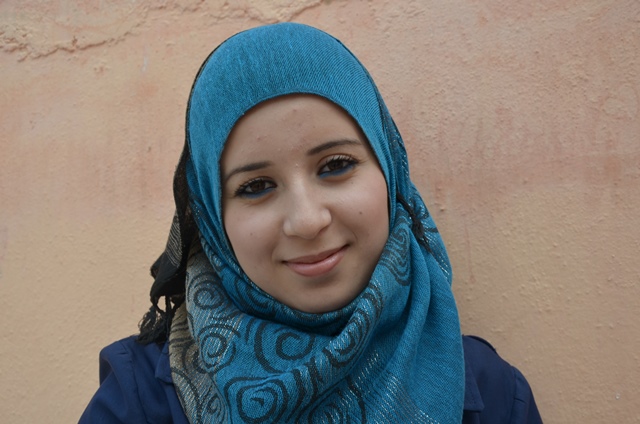by Razan, 20-year-old Syrian refugee girl living in Jordan
I remember this time last year well. I was in Syria, and I was happy. This might sound strange, I know. How can anyone be happy when bombs are falling around you, and you're fearful for your life? Day after day. Every day. Yet, I was happy. At that time, I just enrolled into university. It was a dream of mine. So, despite everything else, how could I not be happy?

I didn't have a lot of choices. One in five schools across my country have been destroyed. I enrolled in the one still standing in my neighbourhood in the town of Smad. It only offered a maths degree; it was not my first choice, but I was happy that I could study in the first place.
Attending school took a lot of courage from us, and a lot of support from our parents. I still remember taking my exams whilst hearing bombs dropping nearby. I still remember praying -- praying that the bombs would not fall right in the middle of us. The noise was so unbearable that at one point -- not even realising it -- my hands started shaking so badly that the pen fell out of my hands on the floor. I kept staring at the test's questions in front of me, not being able to concentrate on the answers. But I was determined. I kept going to school. My mum would always accompany me to school as there were a lot of kidnappings. Then one day, we heard that our school might get bombed next. There has been so much destruction, fear around us already that my family decided to leave everything behind. By then there wasn't much to leave. Our home was bombed down to the ground.
I came to Jordan nine months ago. A long journey -- both in Syria and in Jordan -- that saw us moving from one place to another until we finally reached Mafraq, a Jordanian town close to the Syrian border. We are safe, but I have not been able to continue my studies. It's what hurts me the most.
For the past two months, I have been volunteering at CARE's urban refugee centre in Mafraq. Every day, I speak to people who had to flee our country just like my family. Hearing their stories has made me realise that my story is only a small piece, a fragment. So many other refugees have terrible stories to tell. So many young women and girls have suffered my fate. Some even worse than me -- they didn't even have the chance to experience studying.
In Jordan, schools are overcrowded and often unable to take in refugee students. Syrian parents struggle to fend for the basic needs of their children -- affording a roof over their heads, putting food on the table. Buying school uniforms and supplies or paying for transport to the school is a luxury they simply can't afford. Worse, they often have to rely on the children to work or take care of younger siblings. Despite, I met also widows, struggling families from my country who have done everything in their power to send their children to school in Jordan.
I am still hoping that I would be able to continue my studies. I want this so much that is the only thing which keeps me hoping and carrying on. I know that many other Syrian refugee girls have the same hope. If in any way, through my work at the centre, I keep their hope alive, and help their families to achieve this, I am happy.
Note: Many schools in Jordan are doing double shifts to accommodate the influx of Syrian refugee children; the size of the classes in the affected areas had swelled from 25-30 students to around 60 students. Yet, according to the United Nations, only one third of the some 150,000 Syrian school-aged children in Jordan are getting an education.
Through its four urban refugee centres across Jordan, with the help of refugee volunteers such as Razan, CARE works with Syrian refugees to provide financial and social support so that the families are stable enough to send their children to school. CARE also work with partner organisations to ensure that the educational services best address the needs of Syrian refugee children.